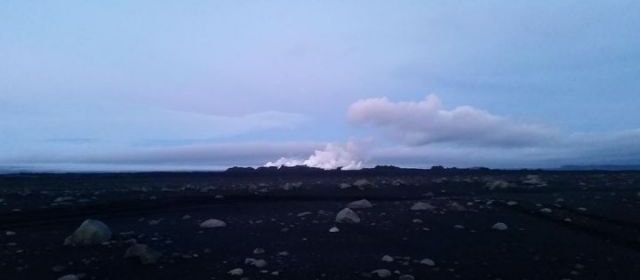Volcano eruption, Icelandic authorities declare red alert
(Baonghean.vn) - Today, in the report of the Icelandic Meteorological Station, the Bardarbunga volcano - the aviation industry's nightmare for many days - has erupted. Authorities said the eruption happened last night. Photos and videos of the mountain 24/7 were immediately posted online. From the photos and videos above, people can easily see columns of smoke and light coming from the cracks.
(Baonghean.vn) - Today, in the report of the Icelandic Meteorological Station, the Bardarbunga volcano - the aviation industry's nightmare for many days - has erupted. Authorities said the eruption happened last night. Photos and videos of the mountain 24/7 were immediately posted online. From the photos and videos above, people can easily see columns of smoke and light coming from the cracks.
Icelandic authorities immediately raised the alert level for aviation to red, the highest level for when volcanic eruptions are imminent or occurring. The red alert was also issued on August 23 but was later downgraded to orange. Today, the no-fly zone has been expanded to about a fifth of the country. However, the red alert does not mean the closure of the island's airport.
 |
| According to the Icelandic Meteorological Station, last night, the Bardurbunga volcano erupted / Photo: Twitter Icelandic authorities declared a red alert level |
The Bardurbunga volcano has been active in recent weeks. During a survey on Wednesday evening, August 20, scientists discovered a fault line at a depth of 4 to 6 kilometers. The fault line is estimated to be about 1 kilometer wide and 10 to 15 meters deep under the Dyngjujokull glacier.
Bardurbunga is a massive volcano that lies 2,000 meters below one of the country's largest glaciers. Eruptions from this volcano are considered a similar threat to air traffic in Northern Europe and the North Atlantic as the eruption of Eyjafjallajökull.
During this time, the European Aviation Safety Agency (EASA) advised European countries except those in the vicinity of the volcano not to close their airspace and only consider it as a “last resort”. EASA’s recommendation is to avoid the paralysis of the European aviation industry as after the 2010 volcanic eruption. In 2010, the Eyjafjallajökull volcano erupted, forcing Europe to close its airspace for a month, resulting in the cancellation of more than 100,000 flights and the stranding of more than 8 million passengers.
Chu Thanh






